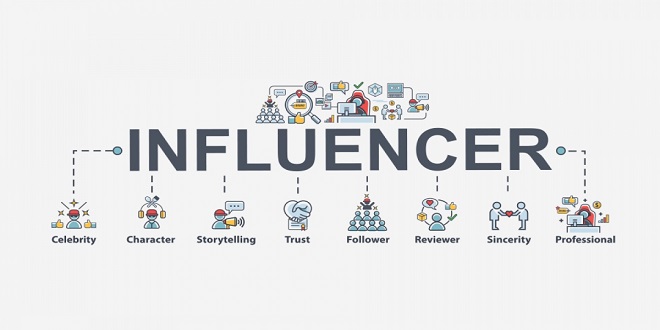Where does digital marketing data come from?

Marketing has seen a revolution thanks to the digital age. It brings with it a wealth data that can be used for campaigns and success. Where does all this data come? Where do all these insights come from? This article will discuss the sources of all digital marketing data. We’ll also examine how it is collected, analysed, and used to create strategies.
Sources for Digital Marketing Data
Businesses today can use digital marketing to their advantage. Businesses must be able to understand the source of their digital marketing data and how they can use it effectively in order to succeed. Businesses will continue to look for new ways to maximize the benefits of digital marketing strategies. Understanding the data sources can help them make better business decisions.
Website analytics is the most popular source of digital marketing data. Website analytics give companies valuable insights into user behaviour, web traffic, and content performance. This information can be used to make informed decisions about how they present themselves online. Social media analytics can also track the engagement with social posts, as well as the interests and demographics of followers. Companies can also use customer relationship management (CRM), to gather leads, track customer interactions, and analyze customer buying patterns over time.
These are just a few of the additional sources that digital marketing information can be sourced from:
Online Sources
Digital marketing is an integral part of any business strategy. It allows companies to reach their target audience in new ways than ever before. Businesses need accurate data to make informed decisions regarding their digital marketing strategies. There are many online data sources that can help businesses understand their markets to create targeted campaigns.
Search engines and social media platforms such as Facebook and Google provide valuable data for digital marketing. These platforms track who visits each page or website and how frequently they interact with it. This gives companies insight into how people interact to their content. Search engine algorithms can also be used to track keywords or trends in particular industries. This helps companies determine which topics resonate with customers.
Customer surveys are another source of online marketing data.
Offline Sources
Digital marketing is changing rapidly, so businesses need to stay on top of it all to be competitive. Businesses must understand all available digital marketing data sources in order to develop effective strategies that maximize their investment.
Sources of offline digital marketing data are information that is not available online. Surveys, customer feedback cards and focus groups are just a few examples. This data is more valuable than other types of data because it gives customers a more intimate view of their opinions and needs. However, it can be more time-consuming as well as more expensive. To ensure accurate responses and reliable information, customers should be asked carefully.
Third-Party Tool
Digital marketing is an ever-growing industry. It is crucial to collect data for digital marketing. Quester and third-party software programs can be used by organizations to spot trends in customer behavior and to develop strategies for reaching new customers.
Many third-party tools allow organizations to quickly and easily access their data. These tools offer detailed analytics about website traffic, social media followers and email campaigns. They also provide search engine optimization (SEO) information. These data can be used for making informed decisions about how best to target your audience with the most effective content.
Quester, a specialized software program, is also available to those who are looking for the best digital marketing data sources. These programs offer deep insight into consumer data from multiple streams and much more.
Search Engines
Digital marketing is a hugely dependent on search engines. Search engines like Google and Bing provide valuable insight into users’ online behavior and interests. Social media networks such as Twitter, LinkedIn, and Facebook allow you to discover trends in customer opinions.
These options offer valuable information that can be used for strategic decision-making in any digital marketing campaign.
DIY Data Collection
Do-it-yourself digital marketing data collection can be a great way for you to track your progress and ensure that your campaigns are successful. You can quickly collect and analyze data about how customers interact with your products or services using the right tools. These data can give you valuable insight into what works and what does not, which will allow you to adjust your approach accordingly.
There are many options when it comes to data collection. To track user behavior and website traffic, you could use Google Analytics. Or, you can use social media analytics platforms such as Hootsuite to measure engagement across different channels. You can also ask customers questions about their experiences with your brand by taking free online surveys. These methods can all be combined to get a complete picture of customer interactions with your company online.
Customer Mails
Collecting customer data is a key part of any digital marketing strategy. This includes email addresses and contact information. Online forms allow businesses to quickly collect customer information from multiple channels. For collecting customer email addresses, forms are particularly useful as they allow businesses to tailor their emails for each user. Forms can provide valuable insight into customer preferences and behaviors, which will allow companies to better understand their market and create more effective strategies moving forward.
Lead Magnets
Small businesses can start collecting customer data by using lead magnet data collection. It is important to create a lead magnet that attracts potential customers and encourages them to provide their contact information. Lead magnets allow you to easily gather valuable information about your target customer and then use that information to improve your marketing efforts.
Lead magnets can come in many formats, including whitepapers and eBooks that provide industry insight, free products and services trials, or discounted offers for those who give their contact information. Whatever lead magnet you choose, it doesn’t matter what kind. All that matters is that your audience needs it.
Analysing Data Resources
Analyzing data sources is crucial to understand how a company’s marketing efforts perform and make informed decisions moving forward.
It is crucial to know what data type needs to be collected in order to effectively analyze data sources. Website analytics, social media insights and conversion tracking are just a few examples of different types digital marketing data. Businesses can use these diverse sources of information to gain valuable insights into customer behavior, and make better decisions about their future strategy.
Marketers should arrange the data once it has been identified.
Data washing
Digital marketing is a vital part that relies on data. Digital marketers depend on data to make informed decisions and adjust campaigns. They also need it to improve their overall performance. Relying on incorrect or dirty data can lead to poor decisions and missed opportunities. It is important to be able to analyze data sources to get accurate and clean results.
Data washing is the first step in analysing data source data. Before incorporating data into a database, it is necessary to verify the accuracy and relevance of each source. After establishing the integrity of the data, it can then be organized into different categories that will allow digital marketing teams to determine correlations between various variables being tracked. This data can be cleaned to provide more precise insights that will help you make better decisions about any campaign or strategy.
Data Compliance
Digital marketing is based on data. It is essential for any campaign to succeed. It is crucial that organizations only use data sources that are reliable and can guarantee compliance. Data compliance is the process of obtaining opt-in data to enhance user experience and adhere to the regulations and requirements set forth by various government regulators like the Australian Communications and Media Authority (ACMA) and the Office of the Australian Information Commissioner (OAIC).
All data collected by organizations must be valid, current, secure, and compliant with applicable laws and regulations. As there can be severe penalties for failing to follow these rules, digital marketers need to be aware of the responsibilities they have when collecting data. Marketers must analyze their sources to ensure customer privacy rights and consumer trust. Transparent communication is key to ensuring this.
Conclusion: Leveraging Data to Success
Marketers can use digital marketing data to make informed decisions that will lead to success. Businesses can tailor their strategies to their target audience by understanding customer journeys and analysing customer behavior. Businesses will be able to create more effective campaigns, improve customer engagement, and achieve better results. Digital marketing data allows for better market analysis, which can lead to more valuable insights about how to improve products or services.
